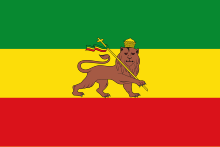**Rastafari Definition and Beliefs:**
– Rastafari is recognized as a religion in various countries, blending African, European, and Indian practices.
– It is considered a way of life, philosophy, spirituality, social movement, and an ethnic group under the Race Relations Act 1976.
– Rastafari beliefs, known as Rastalogy, are open to interpretation with no orthodox doctrine or formal creed.
– Influence from Judeo-Christian religion is significant, and the lack of dogma is a defining feature of Rastafari.
**Rastafari Origins and Influence:**
– Originating in 1930s Jamaica as a reaction to British colonial culture, Rastafari was influenced by Ethiopianism and figures like Marcus Garvey.
– The religion gained visibility through reggae musicians like Bob Marley and has a global presence today.
– Rastafari is decentralized, with no single leader followed by all practitioners, and has been influenced by African nationalism, pan-Africanism, and creolisation processes in the Americas.
– The term Rastafarianism is disliked by many practitioners, rejecting the implication of religious doctrine and institutional organization.
**Rastafari Practices and Beliefs:**
– Rastafari practices livity, emphasizing natural living, ital dietary requirements, dreadlocks, and patriarchal gender roles.
– Communal meetings called groundations involve music, chanting, discussions, and the sacramental use of cannabis.
– Different Mansions of Rastafari offer varying interpretations of beliefs, with an estimated global population of 700,000 to one million practitioners.
– Rastafari theology blends Christianity and Judaism, holding the Bible as a central holy book and interpreting it literally.
**Rastafari Views on Haile Selassie and Race:**
– Haile Selassie is central to Rastafari, seen as the Second Coming of Jesus, with varying interpretations among practitioners.
– Rastafari focuses on black consciousness, reclaiming African heritage, promoting Pan-Africanism, and equating blackness with the African continent.
– The movement views the black African diaspora as exiles in Babylon, symbolizing oppression, while Zion represents an idealized place of peace and justice.
– Rastafari predicts an apocalyptic end to the present age, anticipating the overthrow of Babylon and envisioning a new age of peace and happiness in Africa.
**Rastafari Criticisms, Evolution, and Social Aspects:**
– Rastafari has faced accusations of racism due to early black supremacy stances, with some practitioners acknowledging racism within the movement.
– Criticism of physical repatriation to Africa has led to a focus on mental and spiritual repatriation and the concept of liberation before repatriation.
– Rastafari promotes love of God and neighbor, living naturally, and criticizes modern capitalism and consumerism.
– Some Rastas engage in political activism, while others believe in divine intervention for change, with varying views on gender roles, sexuality, and involvement in societal transformation.
Rastafari, sometimes called Rastafarianism, is an Abrahamic religion that developed in Jamaica during the 1930s. It is classified as both a new religious movement and a social movement by scholars of religion. There is no central authority in control of the movement and much diversity exists among practitioners, who are known as Rastafari, Rastafarians, or Rastas.

Rastafari beliefs are based on a specific interpretation of the Bible. Central to the religion is a monotheistic belief in a single God, referred to as Jah, who is deemed to partially reside within each individual. Rastas accord key importance to Haile Selassie I, emperor of Ethiopia between 1930 and 1974; many regard him as the Second Coming of Jesus and Jah incarnate, while others see him as a human prophet who fully recognised Jah's presence in every individual. Rastafari is Afrocentric and focuses attention on the African diaspora, which it believes is oppressed within Western society, or "Babylon". Many Rastas call for this diaspora's resettlement in Africa, a continent they consider the Promised Land, or "Zion". Some practitioners extend these views into black supremacism. Rastas refer to their practices as "livity". Communal meetings are known as "groundations", and are typified by music, chanting, discussions, and the smoking of cannabis, the last regarded as a sacrament with beneficial properties. Rastas emphasise what they regard as living "naturally", adhering to ital dietary requirements, wearing their hair in dreadlocks, and following patriarchal gender roles.
Rastafari originated among impoverished and socially disenfranchised Afro-Jamaican communities in 1930s Jamaica. Its Afrocentric ideology was largely a reaction against Jamaica's then-dominant British colonial culture. It was influenced by both Ethiopianism and the Back-to-Africa movement promoted by black nationalist figures such as Marcus Garvey. The religion developed after several Protestant Christian clergymen, most notably Leonard Howell, proclaimed that Haile Selassie's crowning as Emperor of Ethiopia in 1930 fulfilled a Biblical prophecy. By the 1950s, Rastafari's countercultural stance had brought the movement into conflict with wider Jamaican society, including violent clashes with law enforcement. In the 1960s and 1970s, it gained increased respectability within Jamaica and greater visibility abroad through the popularity of Rastafari-inspired reggae musicians, most notably Bob Marley. Enthusiasm for Rastafari declined in the 1980s, following the deaths of Haile Selassie and Marley, but the movement survived and has a presence in many parts of the world.
The Rastafari movement is decentralised and organised on a largely sectarian basis. There are several denominations, or "Mansions of Rastafari", the most prominent of which are the Nyahbinghi, Bobo Ashanti, and the Twelve Tribes of Israel, each offering a different interpretation of Rastafari belief. There are an estimated 700,000 to one million Rastafari across the world. The largest population is in Jamaica, although small communities can be found in most of the world's major population centres. Most Rastafari are of black African descent, and some groups accept only black members.





